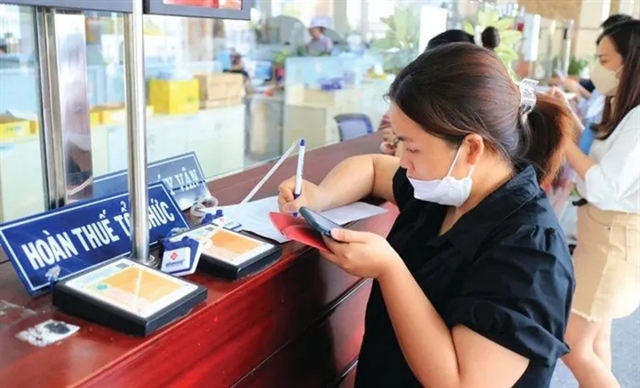Companies claim VAT refunds, amounting to hundreds of billions of VNĐ, have been stuck in limbo for years.

HÀ NỘI — The Việt Nam Association of Seafood Exporters and Producers (VASEP) has raised concerns about the prolonged delays in value-added tax (VAT) refunds, a critical issue plaguing the seafood industry.
In a report submitted to the Prime Minister's Administrative Procedures Reform Task Force and the Advisory Council for Administrative Procedure Reform, VASEP highlighted the significant challenges businesses faced during the first 11 months of 2024. Chief among these issues are delays in VAT refunds, which have disrupted cash flows and jeopardised operations across the sector.
VASEP underscored that resolving this issue is key to alleviating financial strain and driving sustainable growth. The timely processing of VAT refunds is crucial to maintaining the global competitiveness of Việt Nam's seafood exports, especially as companies work to recover and expand in the wake of the pandemic.
Frustration
The issue has long been frustrating for businesses, gaining renewed attention at the 2024 Conference on Tax and Customs Policy Dialogue earlier this month in Hà Nội.
At the event, several companies reported that VAT refunds, at times amounting to hundreds of billions of Vietnamese đồng, have been stuck in limbo for up to five years. One common bottleneck arises when refund applications include invoices from suppliers that have ceased operations, creating procedural and legal complications.
Speaking at the conference, Tô Vĩnh Hưng, Deputy General Director of Southern Steel Co., Ltd. (VNSTEEL), said his company’s struggled to recover nearly VNĐ200 billion, or US$7.86 million, in VAT refunds. The delays, which have persisted since August 2022, stemmed from classifying the company’s input material, scrap metal as high-risk, triggering a lengthy pre-refund verification process.
“At the time of purchase, all our documentation complied with VAT refund regulations. We accounted for all transactions and verified our suppliers were legitimate businesses,” said Hưng.
However, by the time the refund process began, authorities discovered that some suppliers had ceased operations or were in the dissolution process, raising doubts about the validity of the invoices.
“This led to our invoices being suspended without resolution,” he added.
Hưng said that businesses complying with the law should not bear the consequences of their suppliers’ violations. He called for a revision of refund procedures to ensure that: “only the violating party is penalised,” emphasising the need for a fair and efficient system.
The implications of delayed VAT refunds extend well beyond individual companies.
Phan Minh Thông, Chairman of Phúc Sinh Group, one of Việt Nam's leading agriculture exporters, highlighted the cascading effects on export businesses. Already grappling with volatile supply chains, surging commodity prices and fluctuating transport costs, these firms face additional financial strain due to refund delays.
According to Thông, such challenges threaten business operational flow, production capacity and export activities, undermining their ability to compete in global markets.
Data from the General Department of Taxation reveals the scale of the problem. By November 2024, tax authorities had issued 17,300 VAT refund decisions, amounting to nearly VNĐ132 trillion, or just 77 per cent of the year’s target with around VNĐ39 trillion remaining unresolved.
Experts attribute the delays, in part, to systemic bottlenecks. Assoc. Prof., Dr. Lê Xuân Trường, Head of the Tax and Customs Department at the Academy of Finance, explained that current tax management laws centralise VAT refund authority with provincial tax department directors. Meanwhile, district-level and regional tax offices, which directly handle businesses and receive refund applications, must forward these to provincial authorities for approval. This multi-tiered structure creates unnecessary delays.
Reforms
To address these inefficiencies, reforms to the Tax Management Law include proposals to decentralise the VAT refund process. Under the new framework, regional and district-level tax departments could process and approve refund applications. This should significantly reduce processing times, enabling businesses to receive funds more quickly.
“Faster refunds mean businesses can reinvest in production and operations sooner, which is what every business hopes for,” said Trường.
Deputy Minister of Finance Nguyễn Đức Chi said that alongside decentralisation, the ministry will enhance monitoring and auditing processes to ensure compliance with the law. Additionally, efforts will focus on improving the capacity and professionalism of tax officers, ensuring VAT refunds are processed accurately and lawfully while minimising risks of abuse or fraud.
By streamlining administrative procedures and giving additional autonomy to local tax offices, the proposed reforms aim to relieve financial pressure on businesses, enabling them to focus on growth and competitiveness in both domestic and international markets. — VNS





